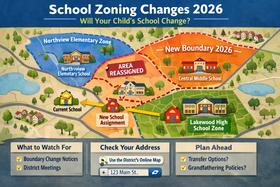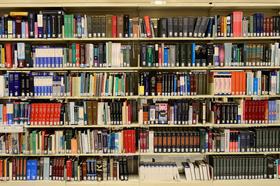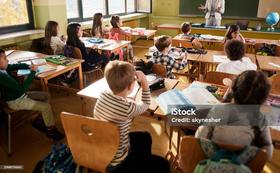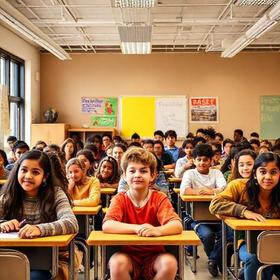The results of a new study show that private school education may be no better than public school education. Keep reading to learn more about this study and to learn how to make the right choice between private and public school education for your child.
The world of education is ever-changing but opinions about private versus public school will always be at odds. It is a common assumption that private school education is of a higher quality than public school education, but the results of a new study suggest that this may not be the case.
After reviewing data from over 1,000 students, researchers from the University of Virginia found no evidence to suggest that students from low-income families and children enrolled in urban schools benefited more from private than from public school education. These results are particularly relevant as legislators fight to move toward a more privatized public education system. They also make it clear that the assumption that public schools are inferior to private schools is wrong.
The fact of the matter is that some schools are simply better than others, but the results of this new study suggest that the factors once thought to play the largest role in determining the quality of public versus private education may not be so important. In order to better understand the results of this study, let’s first take a closer look at some of the supposed benefits of private versus public school.
This video compares and contrasts public and private schools.
The Supposed Benefits of Private vs. Public School
According to the National Center for Education Statistics, roughly 10% of U.S. students (about 5 million) attend private schools compared to 50 million public elementary and secondary school students. Parents choose a private school for a number of reasons including religion, a desire for same-sex education, flexible curriculum, and smaller class sizes.
Each private school is different, but here are some of the supposed benefits of private versus public school education:
- More academic opportunities. Private schools provide a varied and challenging educational experience for students through extracurricular activities, International Baccalaureate programs, Advanced Placement courses, and gifted programs among other opportunities. Studies show as well that private school students consistently score higher on standardized tests and college entrance exams.
- Smaller class size. Research shows that smaller class size improves student performance on academic achievement tests and private schools tend to offer smaller class sizes with lower teacher-to-student ratios for more individualized attention.
- Dedicated teachers and staff. For many private school parents, the dedication of teachers is a primary reason for choosing a private school. Many private school teachers hold advanced degrees in their field and, with smaller class sizes, students have the ability to form closer relationships with their teachers in a role model capacity.
- Parental involvement. Many private schools make it a priority to keep parents involved in the community through parent-teacher meetings, social events, and parent committees. Increased parental involvement in education can also strengthen parent-child relationships.
- Improved safety. Private schools often have a reputation for keeping strict standards for discipline and respect. This combined with a stronger sense of community and lower staff-to-student ratios make for a safer school environment.
- Better access to resources. Because private schools are not limited by public funding, they often have access to better resources. This includes equipment for extracurricular activities as well as technology and other resources for the classroom.
- More extracurricular activities. Academics are the priority for most private schools, but there is also a strong focus on well-rounded education which includes extracurricular activities. Private schools often offer a variety of programs including sports, art, music, and various clubs.
Though there are many potential benefits associated with private school education, there are certainly some drawbacks. For example, public schools are paid for by local taxes while private schools cost an average of over $10,000 a year. Private schools also tend to exhibit less diversity and teachers have fewer requirements in terms of education and experience.
This video examines the differences between public and private schools.
An Overview of the New Study
To complete their research, Robert C. Pianta and Arya Ansari used a longitudinal study of a large, diverse sample of school children with the hopes of determining the extent to which attending private school could predict their achievement as well as social and personal outcomes by the age of 15. They began with data collected from the National Institute of Child Health and Human Development’s Study of Early Child Care and Youth Development.
This data represents the culmination of a 10-site project that followed children from birth to age 15, all having a common study protocol. Participants completed an annual interview complete with observations at home, in school, and in the neighborhood. In total, 1,364 families participated in the study and, on the whole, fairly represented the ethnicities and household income of the U.S. population. Pianta and Ansari took data from 1,097 study participants to complete their own analysis.
The results of this study show that while private school students may be outperforming public school students, the difference is eliminated completely when you control for family income and parents’ level of educational achievement. Children birth through age 5 from high-income homes have educational resources that other children don’t get – conditions that are presumed to carry on through the child’s school years.
Previous to this study, academic achievement was the primary focus of studies designed to determine the efficacy of private schooling. Pianta and Ansari examined this metric but also took into account students’ attitudes and motivation, their social adjustment, and even risky behavior that can be associated with private schooling. After examining the data, they came to the conclusion that there was no conclusive evidence to suggest that, “private schools, net of family background (particularly income), are more effective for promoting student success” than public schools.
Are Private Schools Really Better Than Public School?
Regardless of research, the opinion that private school is better than public school still prevails. In fact, data published by the National Association of Independent Schools (NAIS) and Gallup show that private school graduates have better long-term outcomes. This data combined with the data from the aforementioned study brings to mind the question of how much sense it really makes to compare private and public-school performance when the populations of students are wildly different.
Before getting into the details of that question, let’s review some of the findings from this report. Keep in mind that these results are for NAIS students in particular, not for all private school students. Here are some of the key findings:
- A higher percentage of NAIS graduates than public school graduates enrolled in college immediately following high school (85% versus 69%).
- Nearly 100% of NAIS graduates go on to college, with more than 50% attending some of the nation’s most selective schools.
- NAIS graduates, including minority and first-generation students, outperform public school graduates in seeking out experiential learning and extracurricular opportunities in college.
- Graduates of NAIS schools are more likely to get involved in a wide range of extracurricular and experiential learning opportunities in college including:
- Participating in research with a faculty member.
- Holding a leadership position in a club or organization.
- Participating in intramural sports.
- Being a member of a fraternity or sorority.
- Working on projects lasting longer than one semester.
The findings of this report suggest that NAIS students enter their post-secondary educational careers at a relative advantage over their public-school counterparts and that these benefits persist after graduation. The consistent progression of students through college has been linked to financial advantages such as higher starting salaries and lower student debt.
While these findings seem to support the idea that private school is better than public school, they offer a limited view of the subject. In today’s world, new ideas are automatically questioned unless they are backed up by scientific evidence.
Though this is not entirely a bad thing, it can lead to problems when people put too much stock in the numbers and fail to consider the reality behind them. Take for example the results of the NAIS-Gallup report previously mentioned. The results seem to show that NAIS graduates fare better in and after college than other students. The flaw in this study is that the claims made in the survey only assess factors that contribute to a future sense of well-being (such as a good job and satisfactory life) instead of an actual measure of how well-educated the students are.
The results of this study highlight a common problem in the educational study – that the factors most often measured are not, in fact, the best measures of deep learning. College completion rates, higher SAT scores, and participation in extracurricular activities seem to offer insight into the quality of private school education but that may not be strictly true. Even the most common assessment tools like the SAT and ACT fail to provide any real insight into a student’s level of skill or the complexity of his conceptual understanding – they simply measure test-taking ability and memory.
The fact of the matter is that scientific evidence can only go so far when it comes to measuring the quality of private versus public education. There will always be factors such as socioeconomic status and access to education that come into play. In the end, it is up to each individual parent to decide what is best for their child. Keep reading to learn more about making the right choice for your child.
How to Make the Right Choice for Your Child
What research studies can’t tell you is that every child is different and the best school for one child may not be the best option for another. So, how do you make the right choice for your child?
Here are a few things to think about:
- The cost of private versus public school.
- Class size and student-to-teacher ratio.
- Teacher certification and experience.
- Quality of education and college preparation.
- Admissions requirements and exams.
- Special education requirements.
Now, let’s take a closer look at each of these factors.
Private school tuition varies greatly depending on where you live and whether you choose a secular or religious school. Generally speaking, religious schools average $7,000 while secular private schools cost $22,000 to $40,000. While public schools don’t charge tuition, they aren’t exactly free. To get your child into a high-quality public school you may need to move to a more expensive neighborhood which means higher home prices and property taxes. It’s all about finding the balance between what you can afford and the quality of the educational opportunities available in your area.
Another factor to consider is the size of the public and private schools available in your area. If you live in a major city, the public schools in your area are likely to have large class sizes compared to public schools in suburban and rural areas. Keep in mind that class size is not the same as the student-to-teacher ratio, so be sure to collect this information as well before making your decision.
Perhaps more important than class size and the student-to-teacher ratio is the teachers themselves. Public school teachers are required to be properly certified while private school teachers typically don’t need any formal certification. This being the case, it is entirely possible to find that the education and experience of public-school teachers in your area surpass that of your private school options. You should also remember, however, that public school teachers are more difficult to remove while private school teachers usually have annual contracts – if you have a bad public school teacher, you might be stuck with them longer than a private school teacher.
In addition to considering the quality of the teachers’ education, you also need to evaluate the educational opportunities offered by each school. How well does each school prepare students for college and how many graduates go on to college after high school? You also need to think about the school environment itself because this can be a factor in determining your child’s success. Private schools are more competitive which often correlates with more highly motivated and academically minded students. Your child needs an environment where he is inspired to learn.
Not only should you think about the benefits of public versus private school, but you also need to think about your child’s chances of getting into a private school if that’s the route you choose. Public schools are required by law to accept all children – you don’t need to do much more than fill out a form and provide proof of address to the school district office. For private school, however, you may need to fill out multiple applications and your child may need to complete interviews, essays, and exams to determine his eligibility for admissions. Factors such as ethnicity and religious background may also come into play for admissions to private schools.
One final factor to consider when choosing between private and public schools is your child’s unique educational needs. If your child suffers from a learning disability or has other needs, you may need to be more careful about making your choice. Public schools are legally required to educate all children and to provide the necessary programs to support special needs children. This means that all public schools have special education programs in place with teachers trained to work with special needs students – this may not be the case for private schools. Not only can a private school reject your child due to his special needs, but they also may not have the same resources available.
Choosing between public and private schools is a major undertaking and not something you should take lightly. The quality of your child’s education will set him up for future success or failure, so take the time to really think through your options to ensure that you’re making the best choice possible.
Should You Consider Charter School?
If you are still struggling to decide between public or private schools, there are two more things to consider. The first is to think about sending your child to a charter school. Charter schools rely on public funds, but they are privately operated which often equates to a higher quality of education. Here are a few things you need to know about charter schools:
- Charter schools are tuition-free public schools that are open to all students and are typically operated independently from the traditional school district.
- These schools provide high-quality education from teachers who have the freedom to design a classroom and curriculum that meets their students’ needs.
- A charter school has the flexibility to create a unique school culture that supports both student performance and parent satisfaction.
- All charter schools work under a contract with some kind of charter school authorizer, typically a university, government agency, or nonprofit organization.
- There are more than 7,000 charter schools in the U.S. and each is unique in terms of its educational focus (ex: college prep, STEM curriculum, arts, language, etc.).
- Many parents choose a charter school because of the dedicated staff and the school’s focus that matches their child’s needs.
Whether you can’t afford private school, or you simply believe that public school is the best option, it is still your job as a parent to give your child the best education possible. The best way to do so is to get involved in your community and school. Take advantage of opportunities to work with your child’s teacher and school staff and be active in your community if there are changes you’d like to see. You are your child’s strongest advocate, so fight for the quality of his education!
Questions? Contact us on Facebook. @publicschoolreview















